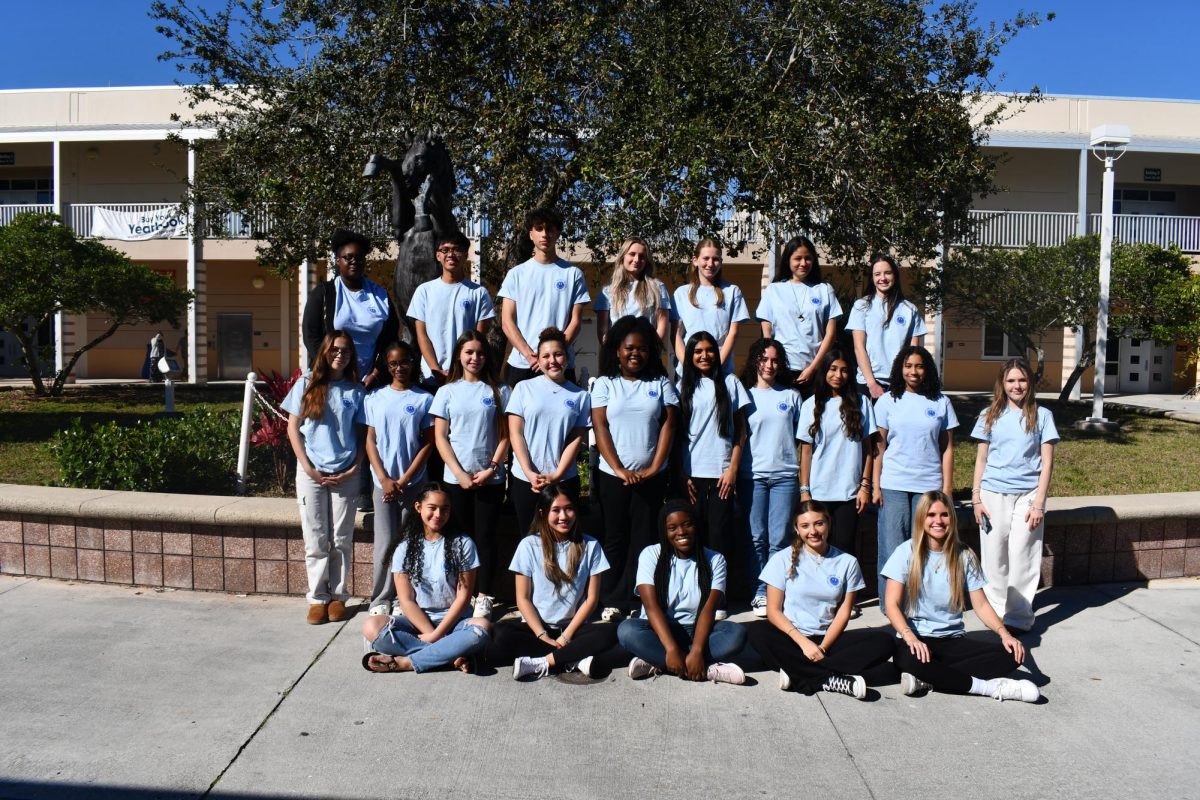Great Resignation, teacher shortage, supply chain crisis spin economy into disarray
December 17, 2021
You see it everywhere: the empty shelves, the rearrangement of teachers, the help wanted signs. Are these economic shortages unimportant, or signs of a more alarming dilemma?
Sorry Santa, your elves all quit this season. This year, Americans seem to be resigning at abnormally rates. This phenomenon, touted as “the Great Resignation,” has pushed the economy into turbulence. In August, employers saw a record 4.3 million Americans quit their jobs according to the Bureau of Labor Statistics. This has ranged from to a few workers leaving to, in the case of a Burger King that went viral during the summer, every employee quitting and leaving a message on the outdoor sign saying “WE ALL QUIT SORRY FOR THE INCONVENIENCE.”
“My job was understaffed before I got hired,” explained junior Giana Martino, who currently works at a local business. “People had to take either more shifts or work longer hours and a lot of the people working there are in high school so, it was hard for them to do that.”
Some workers, especially in the restaurant industry, felt that their companies did not provide proper safety precautions in light of the pandemic. Others saw the new transition to remote working as a more flexible lifestyle, and let go of jobs that returned back to offices. This, combined with a lack of wage increase, compelled workers to leave their jobs.
One of the long-lasting impacts of the Great Resignation came when a nationwide spike in teacher and bus driver shortages made their way into Florida schools. According to the School District of Palm Beach County, there were 349 district-wide teacher occupancies in October. According to Principal Edgecomb, since November, Palm Beach Central has been short approximately 3 to 4 teachers and 7 substitutes per day.
“I tried my best to keep up with the work and use the resources my previous teacher provided,” said Elizabeth Wenke, a senior who experienced having a teacher leave during the beginning of the school year. “But it didn’t feel like enough. I didn’t understand the work.”
In addition, PBC is normally short 4 buses on a daily basis. Consequently, students have noticed their transportation being overpacked and generally uncomfortable.
“Bus riding is kind of bad for me, my bus is very loud and the bus is never on time,” explained junior Shiyi Wang. “I understand the bus shortage due to COVID but it has created many inconveniences.”
To alleviate these school shortages, school districts are using a variety of methods to attract new teachers and staff.
“The district is constantly having job fairs and advertising these positions. Teachers have received some small bonuses and incentives have been given to substitutes and bus drivers.” Edgecomb said. “At the school level, we constantly advertise the vacant positions and strongly pursue potential candidates.”
Increases in unemployment are not the only factor that’s challenging the economy. Disruptions in the supply chain, also being referred to as the supply chain crisis, are keeping packages and presents on hold. The supply chain is a term for the process that manufacturers use to produce goods. Currently, suppliers are not able to produce enough goods to meet the returning global demand for products.
The main reason for the crisis comes from massive shifts in consumer behavior over the last two years. During the start of the pandemic, consumers stopped purchasing as frequently. Companies that sold non-necessities like transportation and technology saw a decrease in demand. As a result, manufacturers slowed down or paused production of everything from iPhones to holiday walnuts.
As the pandemic started to ease near the beginning of 2021, consumers started buying far more than expected. This led to producers having to rapidly accelerate their production level to meet returning demand. Other factors, such as factories shutting down, material shortages, and a lack of truck drivers, strained the situation and caused delays.
As the clock ticks down for the holiday season, businesses are met with even more pressure to meet online and brick-and-mortar shopping during December. Consumers have noticed that many items are becoming expensive or in limited supply in supermarkets and stores. For example, a massive shortage in computer chips this year has caused popular gaming tech, such as the PS5 and Xbox, to be in short supply.
“I got a PS5 a while back,” said senior Hunter Osowski. “It was hard to get because so many people are after it so you have to be fast for it. It’s very high in demand.”
Distribution experts are advising that consumers get their holiday shopping done early or in stores (rather than online) to avoid delays.
“As economies are opening up, demand is ramping up,” said Ravi Anupindi, program director for the Master of Supply Chain Management program at UMich in an interview with The Michigan Daily. “When demand is ramping up, is supply catching up?”
Links:
https://www.statista.com/chart/26186/number-of-people-quitting-their-jobs-in-the-united-states/



